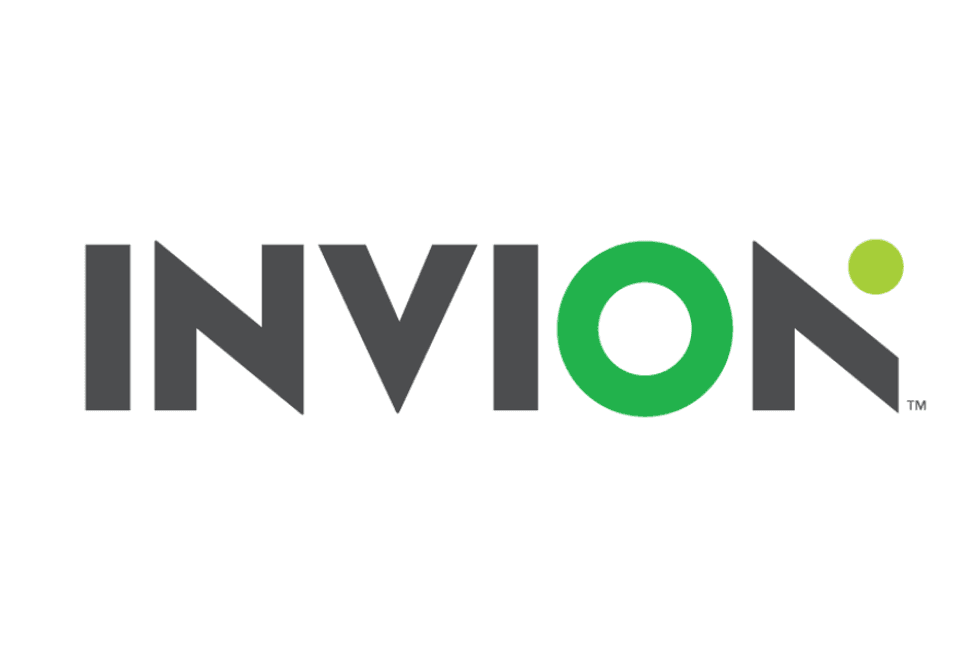Pfizer Initiates Pivotal Phase 2 MagnetisMM-3 Trial of BCMA-CD3 Bispecific Antibody Elranatamab in Multiple Myeloma
Pfizer Inc. (NYSE:PFE) today announced that the first participant has been dosed in the registration-enabling Phase 2 MagnetisMM-3 study (NCT04649359) of elranatamab (PF-06863135), an investigational B-cell maturation antigen (BCMA) CD3-targeted bispecific antibody, in patients with relapsed/refractory multiple myeloma. The study evaluates the efficacy and safety of elranatamab, administered subcutaneously, in patients with disease that is refractory to at least one agent in each of three major classes of medications approved for multiple myeloma. The study's estimated primary completion date is June 2022.
Elranatamab has also been granted Fast Track Designation by the U.S. Food and Drug Administration (FDA). Fast Track is a process designed to facilitate the development, and expedite the review, of new drugs and vaccines that are intended to treat or prevent serious conditions that have the potential to address an unmet medical need. 1
"The initiation of MagnetisMM-3, our pivotal trial, is an important step in our robust and accelerated development program for elranatamab," said Chris Boshoff, M.D., Ph.D., Chief Development Officer, Oncology, Pfizer Global Product Development. "Bispecific antibodies hold promise as the next potential breakthrough in the treatment of multiple myeloma. We are highly encouraged by early data with subcutaneous elranatamab, which was discovered and developed at Pfizer and designed to enhance safety and convenience."
At the Virtual American Society of Hematology (ASH) Annual Meeting and Exposition in December 2020, Pfizer presented encouraging data from an ongoing Phase 1 trial of elranatamab (MagnetisMM-1) demonstrating manageable safety and high response rates in patients with relapsed/refractory multiple myeloma including three patients whose disease relapsed on or progressed after prior BCMA-targeted therapies. At the highest dose level, which informed the dose selected for the Phase 2 study, 83% of patients achieved a clinical response. Safety was manageable across all subcutaneous dose levels with no dose-limiting toxicities observed.
Bispecific antibodies are a novel type of cancer immunotherapy that bind to and engage two different targets at once. One arm binds directly to specific antigens on cancer cells and the other activates and brings a person's own T-cells from the immune system closer to kill the cancer cells.
Elranatamab is a bispecific antibody designed to bind to BCMA which is highly expressed on the surface of multiple myeloma cells, and the CD3 receptor found on the surface of cancer-fighting T-cells, bridging them together to activate an immune response. Binding affinity to BCMA and CD3 has been optimized, to potentially elicit more potent T-cell-mediated anti-myeloma activity. Subcutaneous administration of elranatamab is intended to allow higher doses than intravenous administration without increasing adverse events. In addition to MagnetisMM-3, other trials of elranatamab in multiple myeloma are planned both as monotherapy and in combination with standard or novel therapies.
"Second and later relapses are unfortunately all too common in multiple myeloma and can be devastating to patients as remissions tend to be shorter and the disease may be more aggressive, 2 " said Alexander M. Lesokhin, M.D., lead investigator and hematologic oncologist at Memorial Sloan Kettering Cancer Center. "Targeting BCMA is a promising area of innovation in multiple myeloma."
"Living with multiple myeloma can often be a roller coaster, of both hope and disappointment. It can be so up and down and nerve wracking as it's often the case that a new treatment gets started, only to end in another relapse," said Susie Novis Durie, Founder & President of the International Myeloma Foundation. "Continued research to develop new treatments with novel mechanisms of action is essential to improve outcomes for these patients."
About the MagnetisMM-3 Phase 2 Trial
MagnetisMM-3 is an open-label, multicenter, nonrandomized Phase 2 study of elranatamab monotherapy enrolling approximately 150 people with multiple myeloma who are refractory to at least one proteasome inhibitor, one immunomodulatory drug and one anti-CD38 monoclonal antibody. This study will enroll two cohorts of participants: one with (n=90) and one without (n=60) prior treatment with a BCMA-directed ADC or CAR-T therapy (n=60). Participants will receive a weekly 76 mg subcutaneous injection of elranatamab following a priming dose of 44 mg. The primary endpoint is objective response rate as assessed by blinded independent central review. Key secondary endpoints include: duration of response, progression-free survival, minimal residual disease negativity rate, overall survival and safety. For more information about the trial, visit www.clinicaltrials.gov .
About Multiple Myeloma
Multiple myeloma is a blood cancer that affects plasma cells made in the bone marrow. Healthy plasma cells make antibodies that help the body fight infection. According to the latest figures available, there are approximately 32,270 new cases of multiple myeloma diagnosed annually in the U.S and 176,000 globally. 3,4 Despite treatment advances, multiple myeloma remains incurable. The median survival is just over 5 years, and most patients receive four or more lines of therapy. 5
About Pfizer Oncology
At Pfizer Oncology, we are committed to advancing medicines wherever we believe we can make a meaningful difference in the lives of people living with cancer. Today, we have an industry-leading portfolio of 24 approved innovative cancer medicines and biosimilars across more than 30 indications, including breast, genitourinary, colorectal, blood and lung cancers, as well as melanoma.
About Pfizer: Breakthroughs That Change Patients' Lives
At Pfizer, we apply science and our global resources to bring therapies to people that extend and significantly improve their lives. We strive to set the standard for quality, safety and value in the discovery, development and manufacture of health care products, including innovative medicines and vaccines. Every day, Pfizer colleagues work across developed and emerging markets to advance wellness, prevention, treatments and cures that challenge the most feared diseases of our time. Consistent with our responsibility as one of the world's premier innovative biopharmaceutical companies, we collaborate with health care providers, governments and local communities to support and expand access to reliable, affordable health care around the world. For more than 170 years, we have worked to make a difference for all who rely on us. We routinely post information that may be important to investors on our website at www.Pfizer.com . In addition, to learn more, please visit us on www.Pfizer.com and follow us on Twitter at @Pfizer and @Pfizer News , LinkedIn , YouTube and like us on Facebook at Facebook.com/Pfizer .
DISCLOSURE NOTICE : The information contained in this release is as of February 17, 2021. Pfizer assumes no obligation to update forward-looking statements contained in this release as the result of new information or future events or developments.
This release contains forward-looking information about elranatamab, an investigational B-cell maturation antigen (BCMA) CD3-targeted bispecific antibody, including its potential benefits, that involves substantial risks and uncertainties that could cause actual results to differ materially from those expressed or implied by such statements. Risks and uncertainties include, among other things, the uncertainties inherent in research and development, including the ability to meet anticipated clinical endpoints, commencement and/or completion dates for our clinical trials, regulatory submission dates, regulatory approval dates and/or launch dates, as well as the possibility of unfavorable new clinical data and further analyses of existing clinical data; the risk that clinical trial data are subject to differing interpretations and assessments by regulatory authorities; whether regulatory authorities will be satisfied with the design of and results from our clinical studies; whether and when drug applications for any potential indications for elranatamab may be filed in any jurisdictions; whether and when regulatory authorities in any jurisdictions may approve any such applications, which will depend on myriad factors, including making a determination as to whether the product's benefits outweigh its known risks and determination of the product's efficacy and, if approved, whether elranatamab will be commercially successful; decisions by regulatory authorities impacting labeling, manufacturing processes, safety and/or other matters that could affect the availability or commercial potential of elranatamab; uncertainties regarding the impact of COVID-19 on Pfizer's business, operations and financial results; and competitive developments.
A further description of risks and uncertainties can be found in Pfizer's Annual Report on Form 10-K for the fiscal year ended December 31, 2019 and in its subsequent reports on Form 10-Q, including in the sections thereof captioned "Risk Factors" and "Forward-Looking Information and Factors That May Affect Future Results," as well as in its subsequent reports on Form 8-K, all of which are filed with the U.S. Securities and Exchange Commission and available at www.sec.gov and www.pfizer.com .
# # # # #
Dr. Lesokhin has a consulting relationship with Pfizer.
1 U.S. Food and Drug Administration. Fast Track. Available at: https://www.fda.gov/patients/fast-track-breakthrough-therapy-accelerated-approval-priority-review/fast-track
2 Sonneveld P. Management of multiple myeloma in the relapsed/refractory patient. Hematolog y Am Soc Hematol Educ Program . 2017(1): 508–517. doi: 10.1182/asheducation-2017.1.508
3 American Cancer Society. https://www.cancer.org/cancer/multiple-myeloma/about/key-statistics.html . Accessed January 2021 .
4 World Health Organization. Globocan 2020: Multiple Myeloma. Available at: https://gco.iarc.fr/today/data/factsheets/cancers/35-Multiple-myeloma-fact-sheet.pdf . Accessed January 2021.
5 Mikhael, J, Ismaila N, Cheung M, et al . Treatment of multiple myeloma: ASCO and CCO joint clinical practice guideline. J Clin Oncol. 37:1228-1263.
View source version on businesswire.com: https://www.businesswire.com/news/home/20210217005121/en/
Media Contact: Eamonn Nolan
+1 (978) 273-3946
Eamonn.Nolan@pfizer.com
Investor Contact: Bryan Dunn
+1 (212) 733-8917
Bryan.Dunn@pfizer.com
News Provided by Business Wire via QuoteMedia



